Christine Kozlov’s solo show marks a new chapter at the Academy of Arts and Letters
by Kate MeadowsNov 05, 2024
•make your fridays matter with a well-read weekend
by Manu SharmaPublished on : Mar 27, 2025
Anicka Yi is a conceptual artist from South Korea living in New York, whose work engages sensorial stimuli such as scents created with biological and technological interventions. She explores biopolitics through a feminist and decolonial lens and challenges the hierarchies that define global hegemonies at the smallest possible level: the microbial world. Currently, her work is being presented in the solo exhibition There Exists Another Evolution, But In This One, which runs from March 22 – June 15, 2025, at UCCA Centre for Contemporary Art in Beijing. Yi’s first solo show in China brings together nearly 40 artworks, presenting audiences with a broad entry point into her compelling practice.
STIR connected with the South Korean artist to delve into the show’s representation of sensorial stimuli and organic materials in her conceptual art, highlighting their intersections with cultural hegemonies. Additionally, Yi discussed the ongoing climate emergency and issues with contemporary environmental policy.
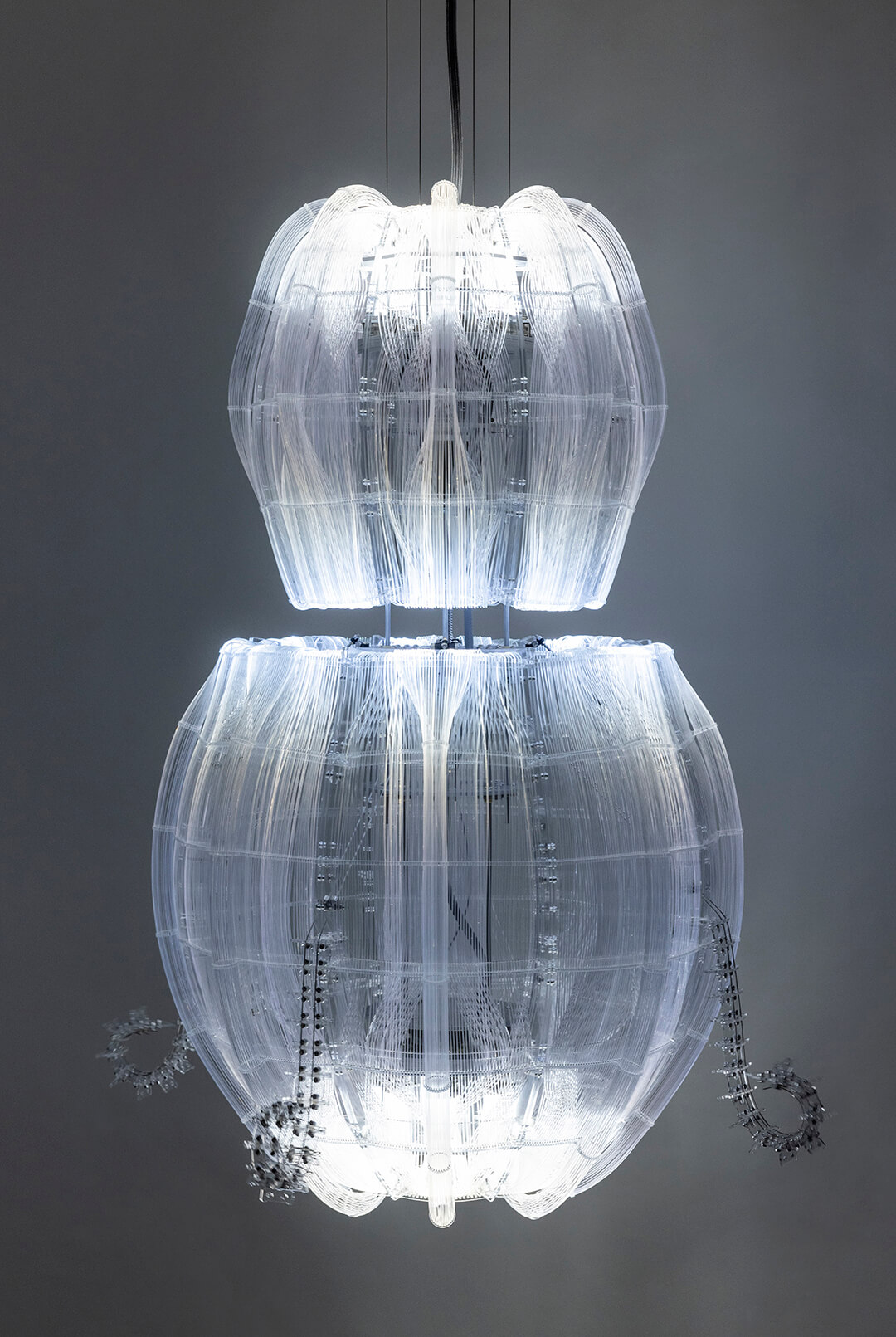
During the Ebola and COVID-19 pandemics, we saw how disease is never just biological—it is always political. Throughout history, from the earliest plagues of antiquity, certain bodies are framed as vectors of contamination, while others are deemed ‘clean’ and protected. – Anicka Yi, artist
Manu Sharma: How do the works in There Exists Another Evolution, But In This One challenge cultural perceptions around positive and negative sensorial stimuli?
Anicka Yi: We are conditioned to categorise a sensory experience into binaries of pleasant/unpleasant, clean/dirty, desirable/undesirable and so on, but these distinctions are shaped by culture, power and ideology rather than any inherent truth. My work often complicates these perceptions, primarily through scent, bacterial processes and organic materials in flux. What we perceive as ‘offensive’ or ‘abject’ often reflects deeper anxieties—about contamination, gender, class or control over the body and environment.
Take fragrance, for example. Scent is deeply tied to memory, emotion and identity, yet we are trained to dismiss it as secondary to vision and hearing. The presence of any scent at all, fragrant or putrid alike, can be taken as an offence against sterilised spaces of power. In this exhibition, scent isn’t a passive background element—it is an active agent, engaging visitors on a pre-cognitive level before interpretation even begins. The fragrance I developed with Barnabé Fillion1—an interplay of marine, metallic and floral notes—emerged from philosophical discussions on evoking deep time2, hybrid ecologies and the porous entanglement of bodies and landscapes. It’s neither conventionally ‘pleasant’ nor ‘unpleasant’—it exists in a liminal space that resists easy categorisation. My works, in asking what a female network smells like or how smell is tethered to racial bias, for instance, use olfaction to intervene in this supposed absence of smell to give material substance to the political and biological.
Similarly, my use of organic matter—algae, bacteria, tempura-fried flowers—challenges the expectation that art should remain pristine and inert. These materials have their own agency; they transform, decay and disrupt. They reject the Western obsession with preservation and control, instead embracing impermanence, metabolism and entanglement. If something unsettles you, ask why. The discomfort may not be about the material itself but about what it exposes—about our fragility, our aversion to change and our inability to accept that we, too, are porous and impermanent.
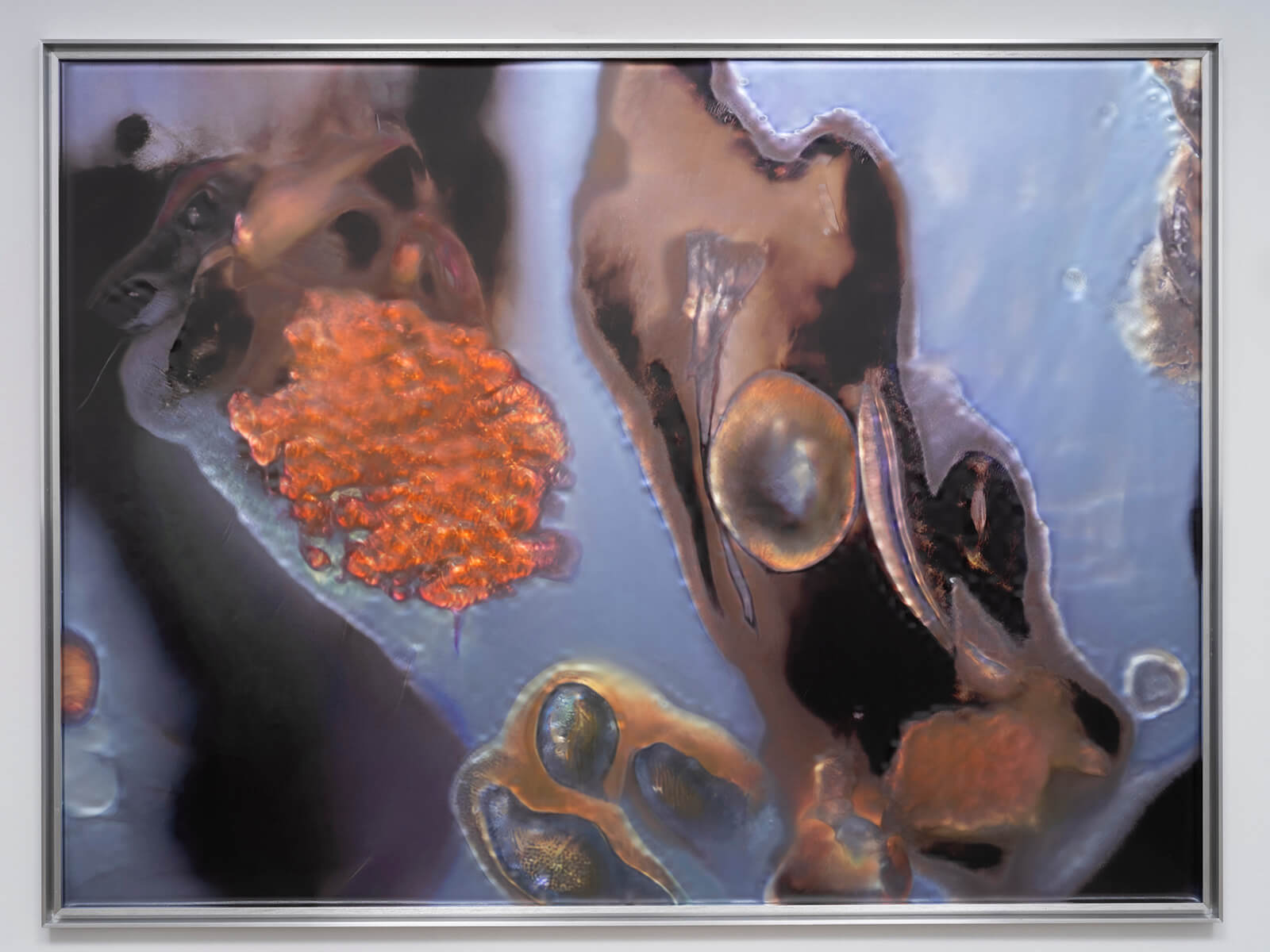
Manu: How has your upbringing as a Korean-American impacted your biopolitics?
Anicka: Growing up between cultures, I became acutely aware of how bodies are disciplined and categorised differently depending on context. In Korean culture, biopolitics is tied to national identity, homogeneity and Confucian ideals of hierarchy and purity. In America, racialisation operates through surveillance, assimilation and the commodification of difference. As an Asian woman in the U.S., my body has always been read through a lens of fetishisation and suspicion—exoticised yet invisibilised, hyper-legible yet illegible. Asian people in America are paradoxically targeted and yet invisible. These tensions have profoundly shaped my thinking about biopolitics, particularly in relation to contagion, control and exclusion.
For instance, during the Ebola and COVID-19 pandemics, we saw how disease is never just biological—it is always political. Throughout history, from the earliest plagues of antiquity, certain bodies are framed as vectors of contamination, while others are deemed ‘clean’ and protected. Even in our current political moment, identities and methods of thinking that break from the status quo are labelled in terms of being social contaminants or as a kind of autonomous ‘virus’. My work has long explored this, especially in projects like You Can Call Me F (2015), where I created quarantine tents infused with scent to challenge perceptions of hygiene, power and gendered fear. The assumption that the foreign, the feminine or the microbial is inherently threatening is a projection of deeper anxieties about the loss of control.
Influence on my biopolitics extends beyond the human experience, too. Western science historically feared microbial life as ‘germs’ to be eradicated, while traditional Korean fermentation practices—kimchi, doenjang—embrace bacteria as essential, even sacred. These competing views of life—one that seeks to dominate, the other to co-exist—are at the core of my work. I’m interested in how we construct hierarchies of value, what we choose to preserve and what we try to eliminate.
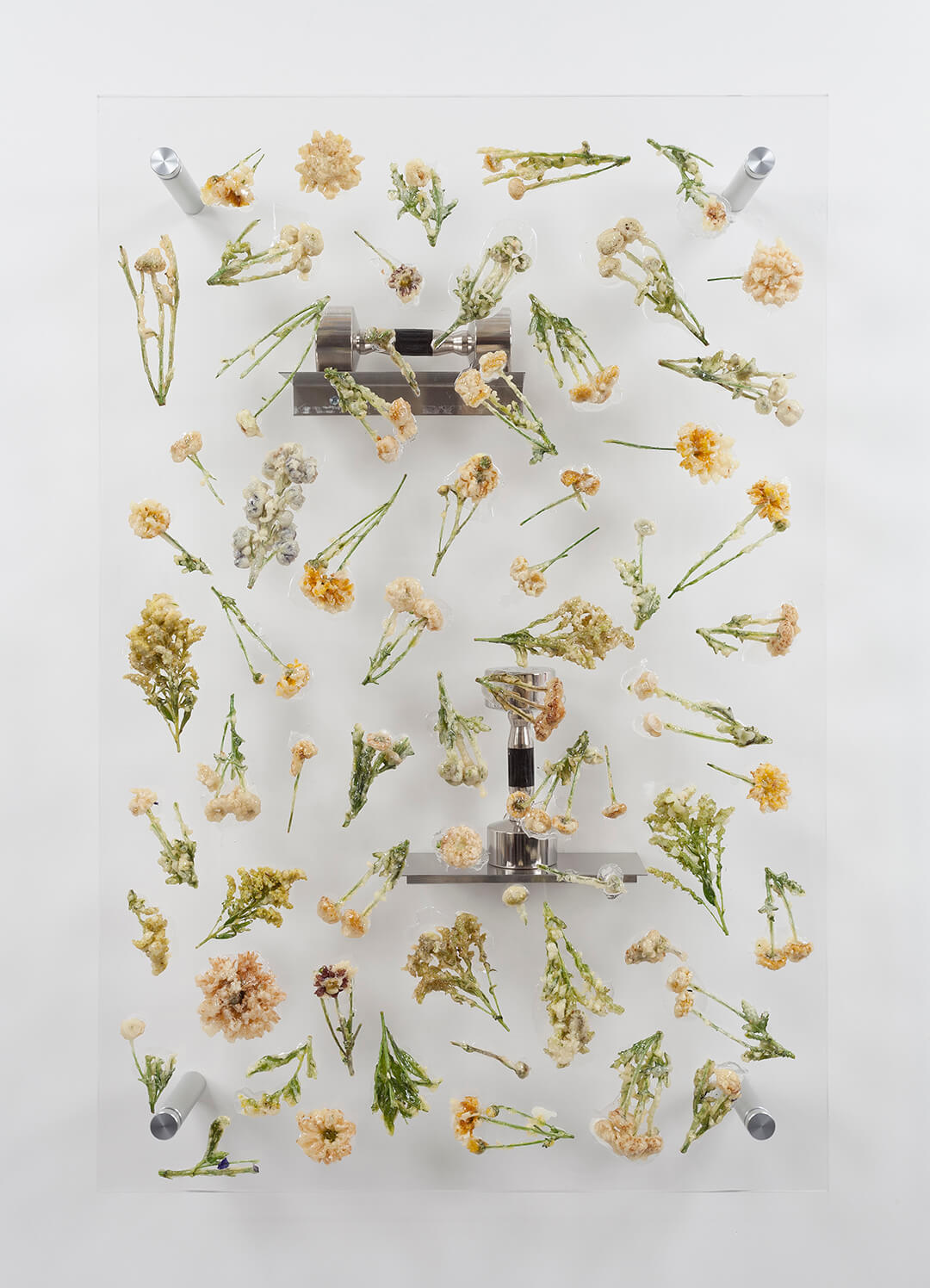
Manu: How does your work question human primacy in environmental biopolitics?
Anicka: The assumption that humans exist above or outside of nature is one of the greatest failures of modern thought. It is this illusion of separation—between human and non-human, nature and technology, self and environment—that has led us to our current state of ecological collapse. My work rejects this hierarchy, instead exploring entanglement, interspecies intelligence and non-human agency.
For instance, my Winogradsky artworks use bacterial cultures to create self-contained micro-ecosystems, highlighting the intelligence of microbial communities (a Winogradsky Column is a glass or plastic encasing used to cultivate microorganic life)3. These bacteria don’t just survive—they communicate, adapt and metabolise. They remind us that intelligence is not limited to cognition and that life itself is an ongoing negotiation between organisms and their environments. Similarly, my Kelp Sculptures evoke ancient algae-based ecologies that predate human civilisation. Kelp is a climate hero—it sequesters carbon, restores marine habitats and provides oxygen—yet we still think of plants as passive, secondary to animals. By working with these materials, I hope to recalibrate attention, shifting the focus away from human exceptionalism toward a more symbiotic worldview.
However, questioning human primacy also means confronting the ways in which power operates within our species. Who has the right to claim land, resources or even air? Climate change is not just an environmental crisis—it is a geopolitical one. Rising sea levels, desertification and resource scarcity will displace millions, exacerbating conflict, exploitation and neocolonial extraction. The same logic that places humans above other life forms also justifies the disposability of certain human populations—those who are seen as too poor, too foreign, too inconvenient to save. If we are serious about dismantling anthropocentrism, we must also dismantle the systems that treat both non-human life and marginalised human communities as expendable.
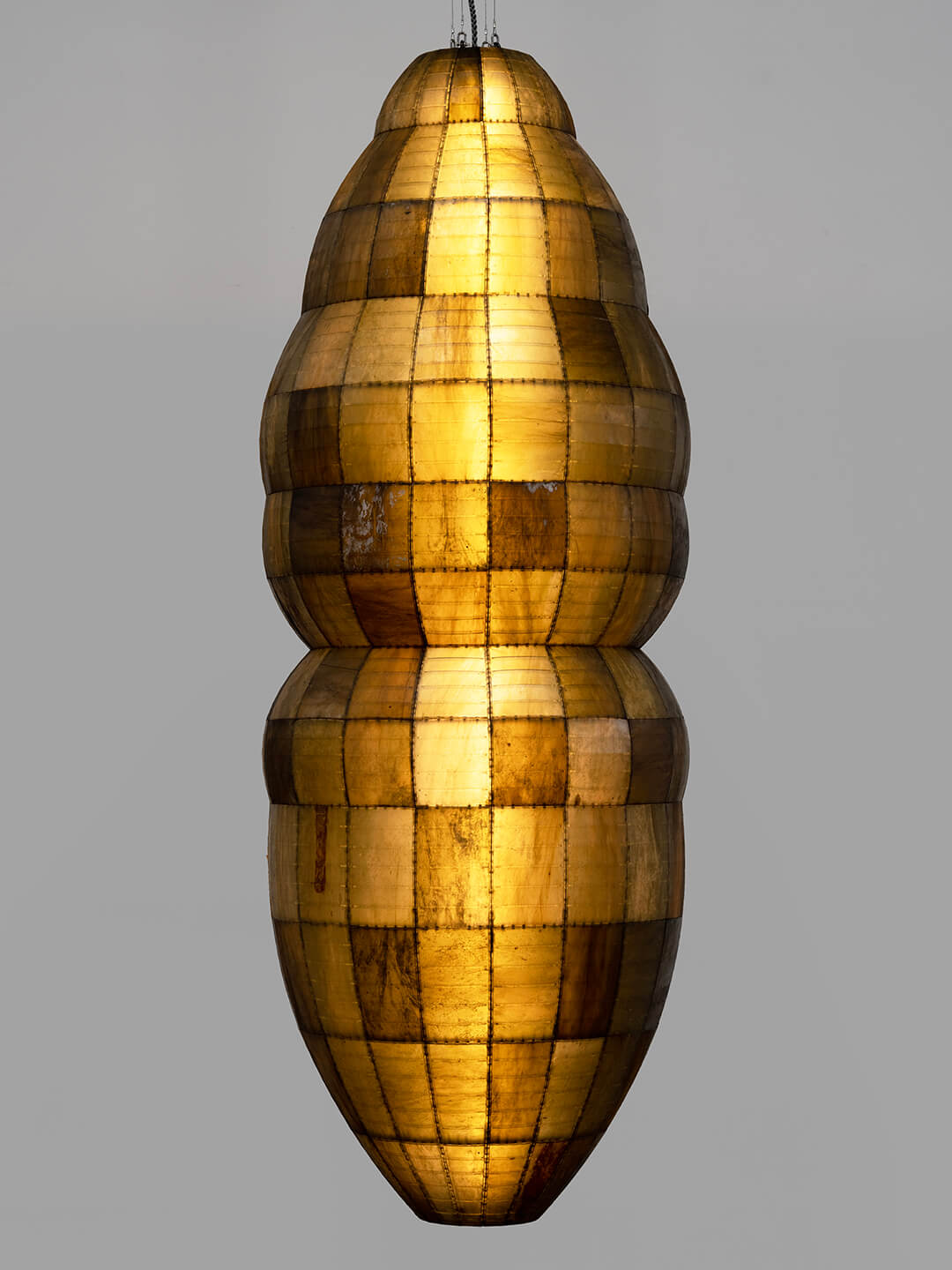
Manu: How would you realign environmental policy, given the ongoing climate crisis?
Anicka: The problem with most environmental policies is that they remain trapped within the very systems that created the crisis. We cannot rely on market-driven solutions to fix a problem rooted in capitalism’s demand for infinite extraction. Nature doesn't adhere to these limitless growth models. Nor can we place our faith in technological fixes that assume we can innovate our way out of collapse without fundamentally changing how we live. The issue is not a lack of solutions—it is a lack of political will, a refusal to relinquish power, profit and the fantasy of control. We need to adopt a more planetary model of resource distribution rather than the power struggles between nation-states and the haves and the have-nots.
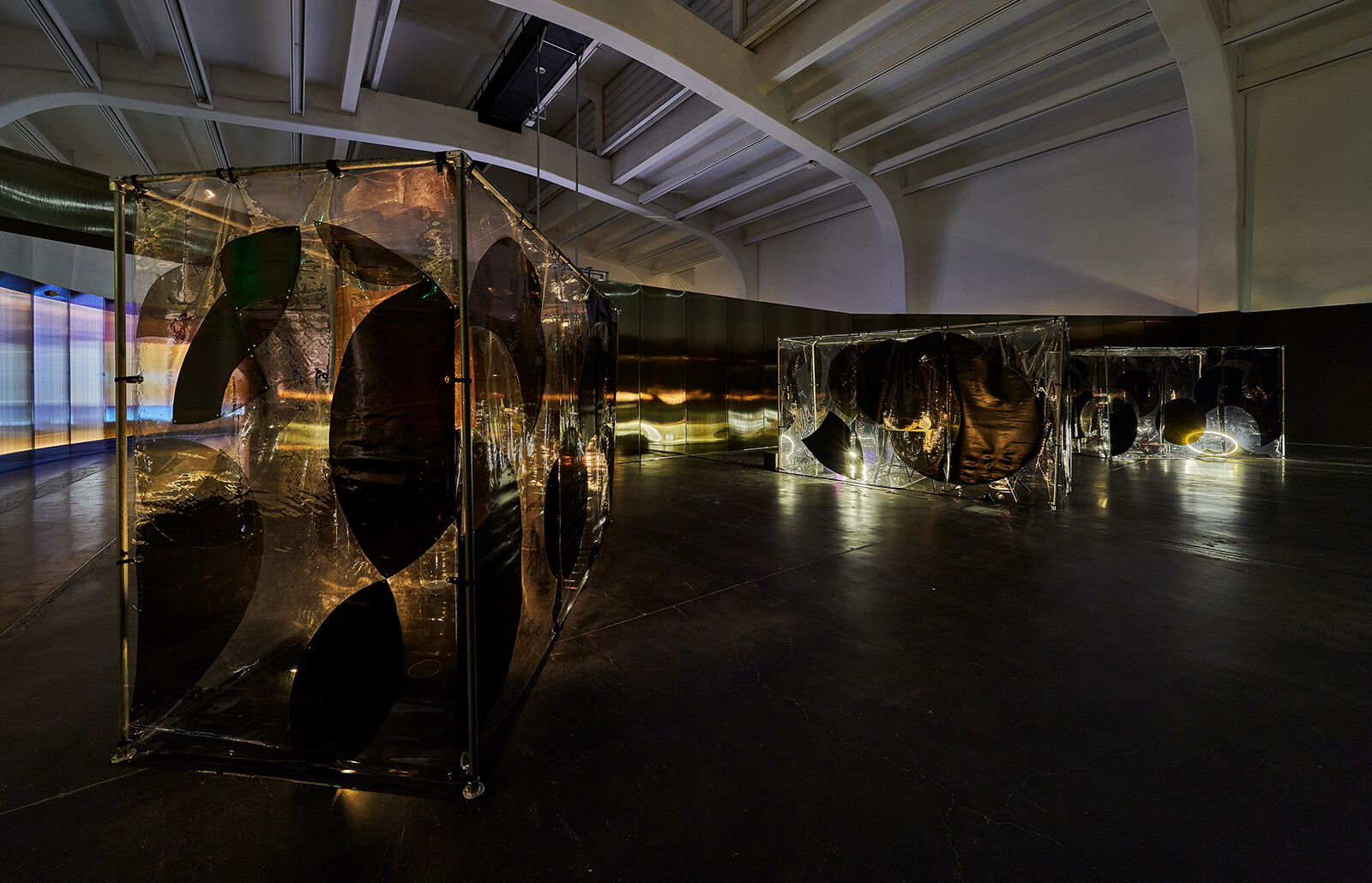
If we are to realign environmental policy, we must begin by rejecting the idea that the planet exists as a resource to be managed. Instead, we must adopt models rooted in reciprocity, interdependence and deep-time thinking. Indigenous ecological knowledge offers profound insights here—principles of stewardship rather than ownership, governance that prioritises long-term planetary health over short-term economic gain. Rather than treating climate policy as a negotiation between nation-states, we should recognise that the biosphere itself has rights—that rivers, forests and coral reefs are not passive entities but vital, sentient systems that must be protected on their own terms.
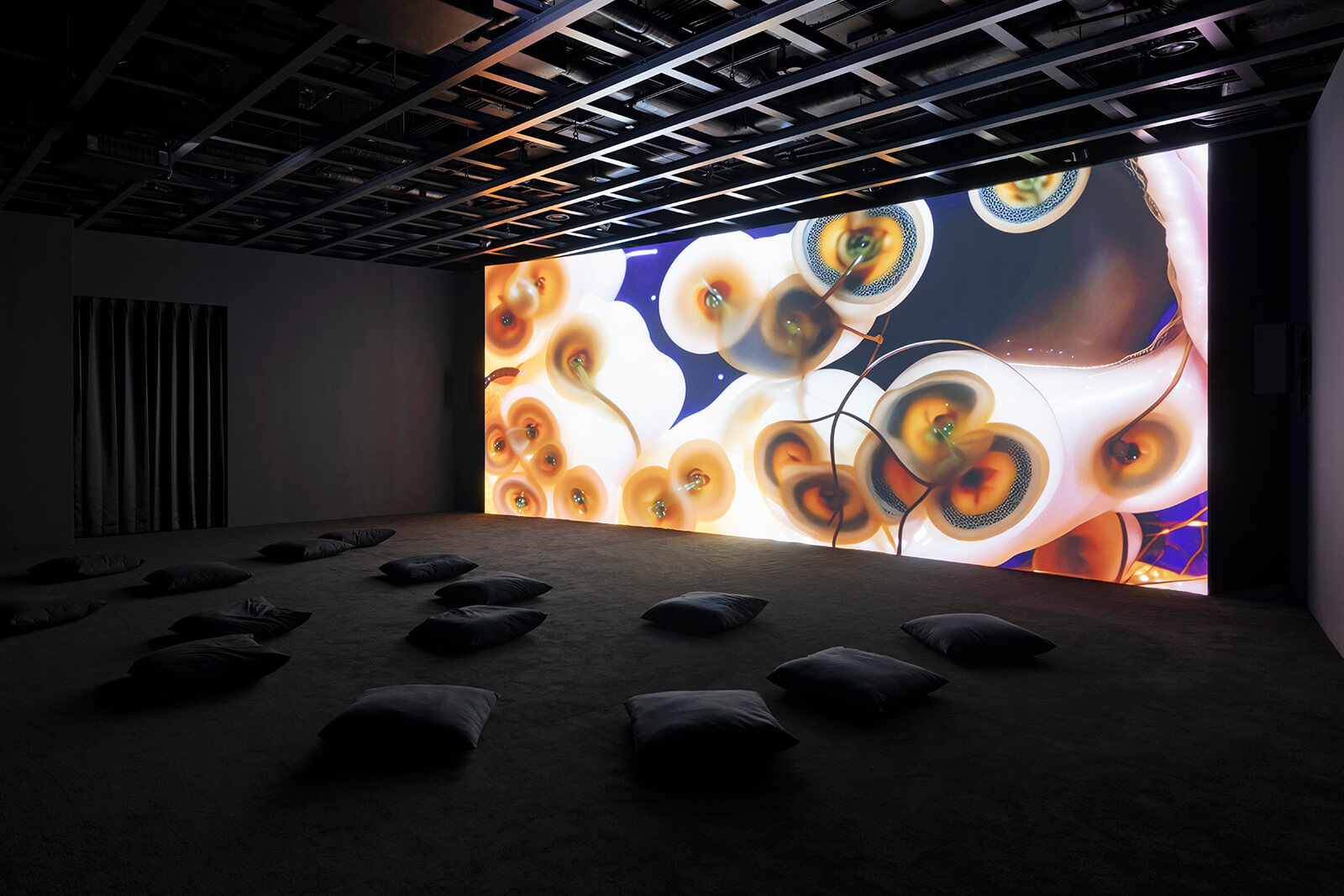
Manu: How do we address the uneven burden of climate collapse?
Anicka: Wealthy nations responsible for the vast majority of emissions continue to extract from the Global South while offloading the consequences on those least responsible. Climate reparations are essential—not as charity, but as accountability. The global financial system must be restructured to prioritise ecological restoration over GDP growth. Corporations that profit from environmental destruction must be held legally accountable. And beyond policy, we must fundamentally rethink our relationship to consumption. No climate solution is viable if it does not include degrowth, a rejection of the idea that progress means more production, more extraction, more waste.
This is not just a political issue—it is an existential one. The question is no longer whether we can prevent climate collapse but what kind of future we are willing to fight for. Do we continue down a path of mass extinction, resource wars and gated survival for the privileged few? Or do we radically reimagine our place in the world—not as rulers, but as collaborators in a shared and precarious existence?
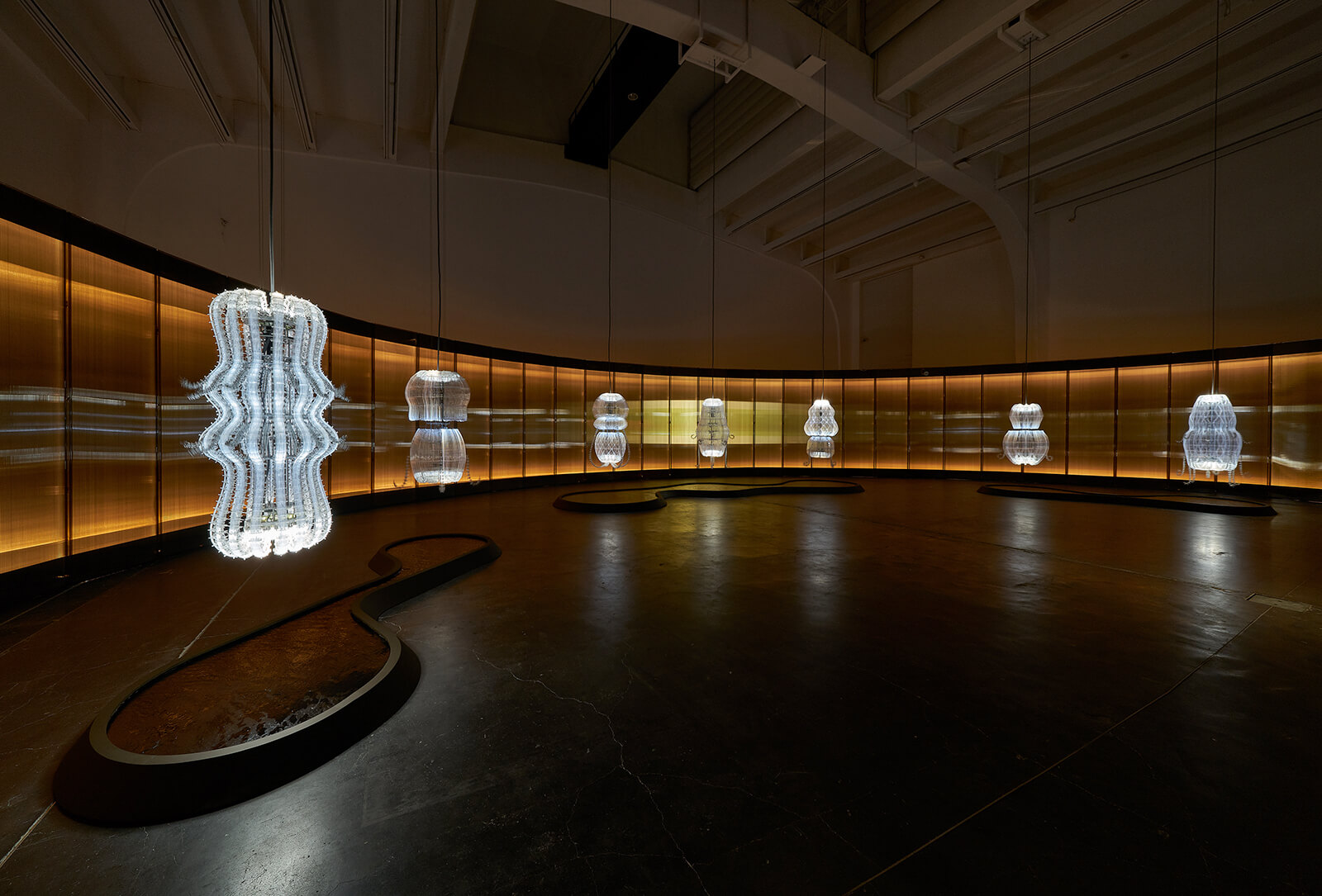
Art may not change policy directly, but it can change how we see, how we feel, how we imagine. And in times like these, imagination is not a luxury—it is a necessity.
'There Exists Another Evolution, But In This One' is on view from March 22 – June 15, 2025, at UCCA Centre for Contemporary Art, Beijing.
References
1.Yi collaborated with French perfumer Barnabé Fillion to create the Biography (2019) line of perfumes, which attempt to connect female beings across species through scent.
2.Geological time, or time measured across the history of the Earth.
3.Yi has created several Winogradsky lightboxes, such as Is Civilization Worth It (2022) and Commodify the Tension (2022), both of which are on view at the show.
by Maanav Jalan Oct 14, 2025
Nigerian modernism, a ‘suitcase project’ of Asian diasporic art and a Colomboscope exhibition give international context to the city’s biggest art week.
by Shaunak Mahbubani Oct 13, 2025
Collective practices and live acts shine in across, with, nearby convened by Ravi Agarwal, Adania Shibli and Bergen School of Architecture.
by Srishti Ojha Oct 10, 2025
Directed by Shashanka ‘Bob’ Chaturvedi with creative direction by Swati Bhattacharya, the short film models intergenerational conversations on sexuality, contraception and consent.
by Asian Paints Oct 08, 2025
Forty Kolkata taxis became travelling archives as Asian Paints celebrates four decades of Sharad Shamman through colour, craft and cultural memory.
 surprise me!
surprise me!
make your fridays matter
SUBSCRIBEEnter your details to sign in
Don’t have an account?
Sign upOr you can sign in with
a single account for all
STIR platforms
All your bookmarks will be available across all your devices.
Stay STIRred
Already have an account?
Sign inOr you can sign up with
Tap on things that interests you.
Select the Conversation Category you would like to watch
Please enter your details and click submit.
Enter the 6-digit code sent at
Verification link sent to check your inbox or spam folder to complete sign up process



by Manu Sharma | Published on : Mar 27, 2025
What do you think?